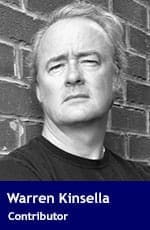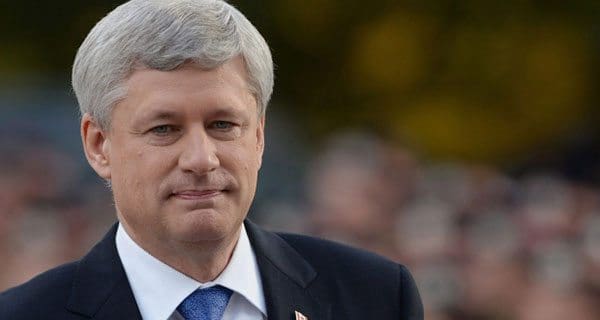 And so it ends, not with a bang, but a whimper.
And so it ends, not with a bang, but a whimper.
Late last week, in a secluded part of Centre Block, staff were seen packing up Stephen Harper’s Parliamentary office. Anyone wandering by could see the moving boxes and the packing tape, in plain view. Harper, the 22nd prime minister of Canada, had cast his last vote in the Commons. He was heading home to Calgary.
Harper hadn’t said a word in the Commons since being defeated by Justin Trudeau in the fall. But he had shown up to vote, plenty of times – more than the NDP’s Tom Mulcair, reportedly. Even after that night when Trudeau had strong-armed the Conservative whip – even when the Liberal Prime Minister had elbowed a female NDP MP in the chest, no less – Harper had kept silent. You can’t picture Brian Mulroney ever exercising that kind of restraint.
Harper will soon head off to do what former prime ministers and presidents do – write memoirs, sit on some boards, give some speeches, play golf together. Sleep in.
Unlike some folks, and certainly unlike many Liberals, I did not detest Stephen Harper. There are 10 reasons for this, all of them much more personal than political.
- When my dad was dying, Harper phoned me and my mom to talk about fathers. He did this despite the fact that yours truly had ripped him, on TV and radio and in newspapers, for years. He was kind to my grieving mom, and I never forgot that.
- I publicly predicted – as did many others – that, with a parliamentary majority, Harper would make abortion and gay marriage illegal, he would constitutionalize property rights, and so on. He did none of those things.
- I, and others, thought he was an admirer of Republican-style manifest destiny – and that he would therefore lead us into illegal wars to curry favour with the likes of George W. Bush. He didn’t do that, either.
- Unlike some former and present Liberals, he was immensely respectful towards my political father, Jean Chrétien, even when Chrétien ran him down in the papers. He told me admired Chrétien’s commitment to Canada, his discipline, and his fiscal probity. And it showed.
- One time, I can now reveal, Harper called me up to talk about ways to prevent some grossly homophobic Jamaican rappers from getting into Canada. His officials had told him there was nothing he could do, and he was unhappy with that. He said I knew something about both popular music and bigotry, and wanted to talk to work on ways to keep these gay-bashers out.
- Similarly, when I was Chrétien’s special assistant in Opposition – and when the neo-Nazi Heritage Front was infiltrating Reform Party riding associations in Toronto – Harper actually told Tom Flanagan to send me their relevant membership lists, so I could tell them who was a suspected Nazi. With Chrétien’s approval, I did that. They kicked out the ones I spotted. It impressed both Chrétien and me.
- As a charter member of the Alberta diaspora, that unkillable Central Canadian insinuation that all Albertans were followers of Jim Keegstra and the Ku Klux Klan always pissed me off. It clearly bothered Harper, too. But, unlike me, he did something about it: He dragged Alberta into the centrist Canadian political mainstream – paving the way, paradoxically, for the likes of Rachel Notley and Justin Trudeau to later win lots of seats there.
- Even though I was a dirty rotten Liberal, he twice hired me to be a ministerial special representative on aboriginal issues, which are pretty important to me. (He did likewise with Chrétien’s nephew Raymond, too.) Under his watch, spending on aboriginal programs grew, significantly.
- As a war room guy, I always admire a worthy adversary. I and my fellow Grits grossly underestimated Harper for a decade. We paid the price: In 2006 and 2008 and 2011, he kicked our butts.
- Finally, I thought he might wreck the place but he didn’t. This is still the best country in the world, and I think – if those of us who opposed him are honest with ourselves – he clearly thought so, too.
The world did not end with Stephen Harper. Nor was he, as Eliot wrote in J. Alfred Prufrock, “full of high sentence, but a bit obtuse,” ever.
Stephen Harper wasn’t obtuse. He was many things, but never that.
Warren Kinsella is a Canadian journalist, political adviser and commentator.
The views, opinions and positions expressed by columnists and contributors are the author’s alone. They do not inherently or expressly reflect the views, opinions and/or positions of our publication.



Harper always had class, unlike his detractors.